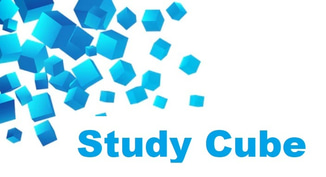CA FOUNDATION SYLLABUS
ICAI FOUNDATION SYLLABUS
(ICAI FOUNDATION 4 EXAMS)
PAPER -1 ACCOUNTING
PAPER -2 BUSINESS LAW
PAPER -3 QUANTITATIVE APPTITUDE
PAPER -4 BUSINESS ECONOMICS
The ICAI Foundation Course is the entry-level examination for the Chartered Accountancy (CA) program in India. It focuses on building a strong foundation in accounting, business laws, and economics. The syllabus is structured into four main papers, with both theoretical and practical applications. Here is an outline of the syllabus:
Paper 1: Principles and Practice of Accounting
This paper covers the basics of financial accounting and aims to develop an understanding of accounting principles, concepts, and conventions. Key topics include:
Theoretical Framework and Accounting Process
Bank Reconciliation Statements
Inventories
Concept and Accounting of Depreciation
Accounting for Special Transactions (Bills of Exchange, Consignments, Joint Ventures, etc.)
Final Accounts of Sole Proprietors
Partnership Accounts (Basics of Admission, Retirement, Death of a Partner, etc.)
Company Accounts (Introduction to Shares, Debentures, etc.)
Paper 2: Business Laws and Business Correspondence and Reporting
This paper is divided into two sections: Business Laws and Business Correspondence.
Section A: Business Laws
Indian Contract Act, 1872
Sale of Goods Act, 1930
Indian Partnership Act, 1932
Limited Liability Partnership Act, 2008
Companies Act, 2013 (Basics)
Section B: Business Correspondence and Reporting
Communication (Types and Basics of Communication, Communication Barriers, etc.)
Sentence Types and Transformation
Vocabulary (Synonyms, Antonyms, Idioms, etc.)
Comprehension and Note Making
Developing Writing Skills (Writing formal letters, reports, memos, etc.)
Paper 3: Business Mathematics, Logical Reasoning, and Statistics
This paper combines mathematical and logical skills with introductory statistics.
Section A: Business Mathematics
Ratio and Proportion, Indices, Logarithms
Equations and Matrices
Time Value of Money
Permutations and Combinations
Sequences and Series
Sets, Relations, and Functions
Section B: Logical Reasoning
Number Series, Coding and Decoding
Direction Tests, Seating Arrangements
Syllogisms
Blood Relations
Section C: Statistics
Statistical Description of Data (Collection, Classification, and Presentation)
Measures of Central Tendency and Dispersion
Probability and Basic Probability Rules
Theoretical Distributions
Correlation and Regression Analysis
Index Numbers and Time Series
Paper 4: Business Economics and Business and Commercial Knowledge
This paper introduces students to economic principles and the basics of business knowledge.
Section A: Business Economics
Introduction to Microeconomics
Theory of Demand and Supply
Theory of Production and Cost
Price Determination in Different Markets
Business Cycles
Section B: Business and Commercial Knowledge
Business Organizations
Business Environment
Government Policies for Business Growth
Organizations Facilitating Business
Common Business Terminologies
Examination Pattern
Each paper carries 100 marks.
Papers 1 and 2 are subjective, while Papers 3 and 4 are objective with negative marking.
To pass, students must score at least 40% in each subject and a total of 50% aggregate across all subjects.
This foundational course serves as a comprehensive entry to the CA program and builds essential knowledge and skills needed for the Intermediate and Final levels.
